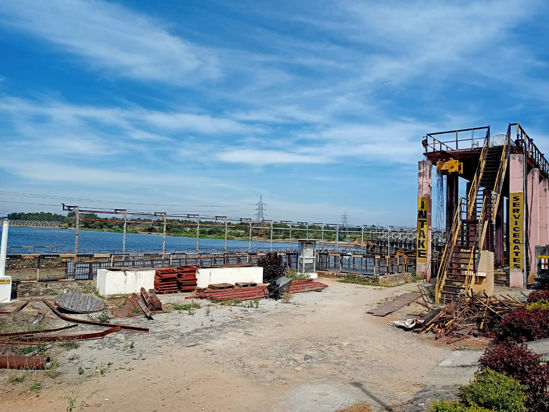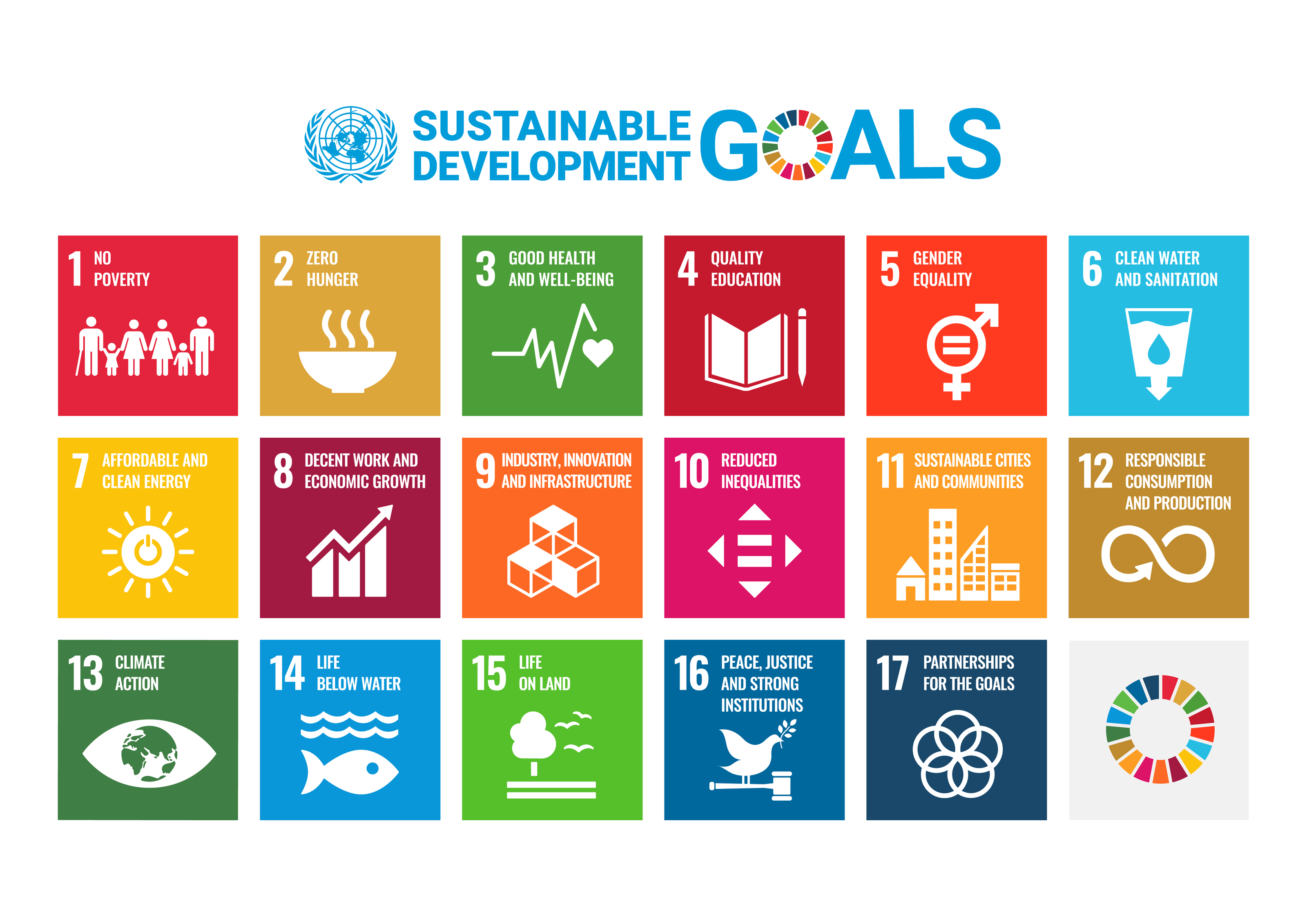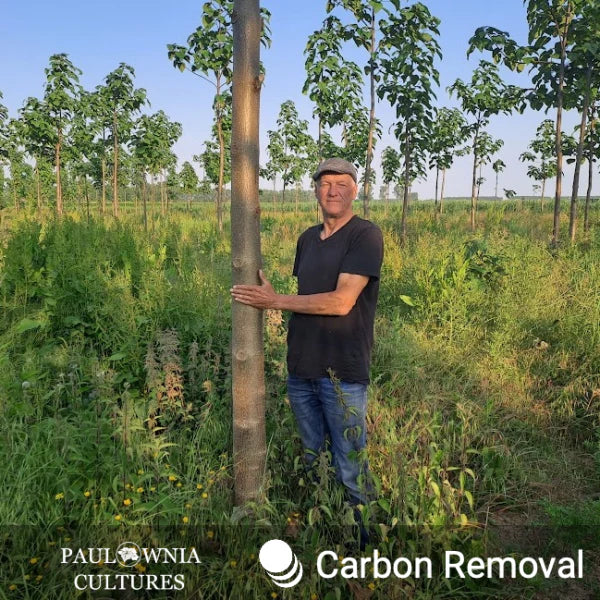ASIND HYDRO1 - Sattegala 6MW Hydro plant providing green energy to the local community in India
ASIND HYDRO1 - Sattegala 6MW Hydro plant providing green energy to the local community in India
3872 in stock
Couldn't load pickup availability
Details of the Mini Hydel Scheme are as follows:
The project involves implementation and operation of a 6.25 MW Small Hydroelectric grid connected with the renewable energy project on right bank of Cauvery river about 2 Km upstream of the Sattegala bridge in District Chamarajanagar (Karnataka, India) and exporting the generated electricity to the state owned power utility company Karnataka Power Transmission Corporation Ltd. (KPTCL).
There is a diesel generator of 63 kVA capacity, which was used at the time of construction and the present use of the same is negligible (since the project is run of river and not canal based) compared to the amount of CO2 displacement of the project activity. However, the diesel consumption will be monitored during the whole crediting period.
Environmental well-being:
- The project utilizes environmentally safe and sound technologies of small-scale hydroelectric power generation and demonstrates harnessing of hydro potential, thus encouraging setting up of similar projects.
- The project does not create any negative impact on the environment, as there is no submergence or stagnation of water.
- The project will not have any negative impact on the public health scenario or natural resources of the region.
- The project reduces GHG emissions which would have taken place in the absence of the project due to generation of the similar proportion of electricity generated by the project from fossil fuel based generating stations.
Social well-being:
- The project involves no displacement of people living near the project area and hence no rehabilitation and resettlement.
- The project is implemented in a rural area that does not have proper roads and other infrastructure facilities. Project proponents had constructed a road for approach and other infrastructure facilities in the village as a part of the project construction.
- The project has led to direct and indirect employment for the local population as the construction and maintenance staff has been drawn from the nearby local areas.
- More and more rural industries will be set up and new opportunities for development will be created because of the hydroelectric project in the area. This will result in infrastructure development, which ultimately lead to rural development and prevent the migration of rural poor to cities.
- The project may promote eco tourism in due course.
Economic well-being:
- The project proponent has invested approximately Rs. 551.637 Million in the project, which is a considerable additional investment in rural area, which would not have happened otherwise, in the absence of the project activity.
- The project activity leads to alleviation of poverty by generating direct and indirect employment during its construction and operation. The mini Hydel scheme created direct employment opportunities totally for more than 200 people during the construction. The project provides an additional source of income for the local poor people by providing employment amounting to an investment of Rs.90,00,000/- during the construction period as salaries / wages for construction workers, mostly rural poor people, which otherwise would not happen in the absence of the project. In addition, the project creates direct permanent employment for about 20 people during operation of the plant. This translates into an investment of about Rs.6,00,000/- per year.
- The project will bring in additional investment to the region due to increased earnings of residents creating increased demand.
Technological well-being:
- The project makes use of efficient environmentally safe technology for power generation.
- The generation of electricity from the project leads to strengthening of the grid, increasing the energy availability and quality of power in the nearby rural areas thereby meeting the energy demand to a certain extent leading to technological well-being.

Certificates
-
CO2 removal
Amount of carbon removed:
3872 tCO2e
(= x1000 kg CO2 emitted)
-
Registry / Verification
RegistryRegistry: UN
Status: Certified
Verification number: IN: 276597080 - 276601380
-
Other information
Project goals
-
Objectives
-
Sustainable Development Goals
United Nations SDGs
Project Information
-
Project
Project Manager:
- Maurice Mulder
Status
Planning
Available
-
Google Maps
India
-
Local Management
Link
Sustainable Development Goals

1: No poverty
There are many reasons, but in short, because as human beings, our well- being is linked to each other. Growing inequality is detrimental to economic growth and undermines social cohesion, increas- ing political and social tensions and, in some circumstances, driving instability and conflicts.
The private sector has a major role to play in determining whether the growth it creates is inclusive and contributes to poverty reduction. It can promote economic opportunities for the poor.
5: Gender equality
Regardless of where you live in, gender equality is a fundamental human right. Advancing gender equality is critical to all areas of a healthy society, from reducing poverty to promoting the health, education, protection and the well-being of girls and boys.
We fund education campaigns to curb cultural practices like female genital mutilation and change harmful laws that limit the rights of women and girls and prevent them from achieving their full potential.
8: Decent work and economic growth
Goal 8 is about promoting inclusive and sustainable economic growth, employment and decent work for all. Decent work means opportunities for everyone to get work that is productive and delivers a fair income, security in the workplace and social protection for families, better prospects for personal development and social integration. A continued lack of decent work opportunities, insufficient investments and under-consumption lead to an erosion of the basic social contract underlying democratic societies: that all must share in progress.
Providing youth the best opportunity to transition to a decent job calls for investing in education and training of the highest possible quality, providing youth with skills that match labour market demands, giving them access to social protection and basic services regardless of their contract type, as well as leveling the playing field so that all aspiring youth can attain productive employment regardless of their gender, income level or socio-economic background.
Governments can work to build dynamic, sustainable, innovative and people-centred economies, promoting youth employment and women’s economic empowerment, in particular, and decent work for all.
Implementing adequate health and safety measures and promoting supportive working environments are fundamental to protecting the safety of workers, especially relevant for health workers and those providing essential services.
13: Climate action
very person, in every country in every continent will be impacted in some shape or form by climate change. There is a climate cataclysm looming, and we are underprepared for what this could mean.
Businesses and investors need to ensure emissions are lowered, not just because it is the right thing to do, but because it makes economic and business sense as well.
15: Life on land
Goal 15 is about conserving life on land. It is to protect and restore terrestrial ecosystems, sustainably manage forests, combat desertification, and halt and reverse land degradation and stop biodiversity loss.


